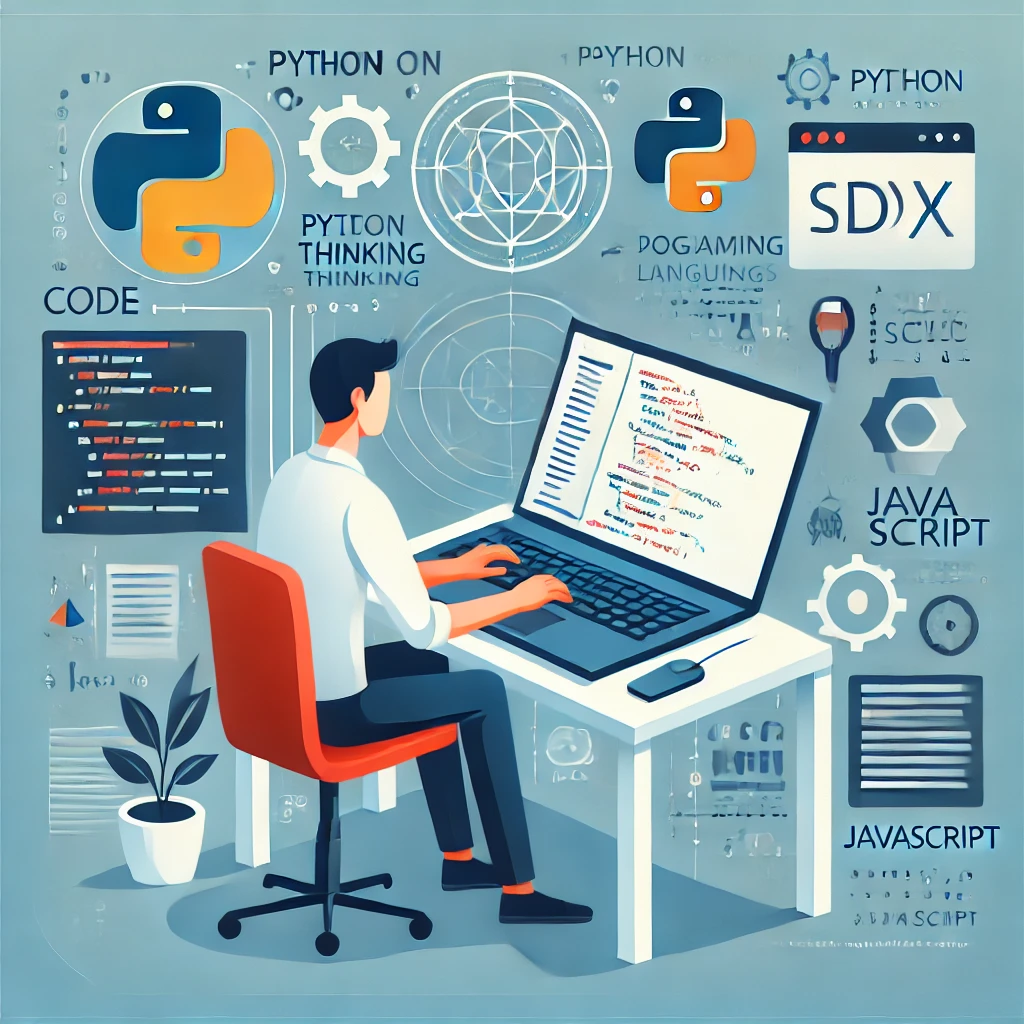From technical expertise to problem-solving and soft skills, becoming a successful programmer requires a combination of knowledge, practice, and adaptability. In today’s tech-driven world, computer programming is one of the most sought-after skills. Whether you’re building websites, developing apps, or working on cutting-edge AI projects, the abilities needed to be a computer programmer are diverse and multifaceted. In this article, we’ll explore the skills required for a computer programmer and how you can develop them to thrive in this dynamic field.
Introduction to Computer Programming
Computer programming is the process of designing, writing, testing, and maintaining the source code of computer programs. It’s the backbone of software development, enabling everything from simple mobile apps to complex operating systems. As technology continues to evolve, the demand for skilled programmers is skyrocketing. According to the U.S. Bureau of Labor Statistics, employment of software developers is projected to grow 22% from 2020 to 2030, much faster than the average for all occupations. But what does it take to succeed in this field? Let’s break down the skills needed to become a computer programmer and how you can build them.
Technical Skills Needed for Computer Programming
At the core of programming lies a set of technical skills that every aspiring programmer must master. These are the tools of the trade, and they form the foundation of your ability to write efficient, functional code.
1. Proficiency in Programming Languages
One of the most obvious computer programmer skills is the ability to write code in one or more programming languages. Popular languages include:
- Python: Known for its simplicity and versatility, Python is widely used in web development, data science, and AI.
- JavaScript: Essential for front-end web development and increasingly popular for back-end development with Node.js.
- Java: A robust language used in enterprise applications, Android development, and large-scale systems.
- C++: Ideal for system programming, game development, and performance-intensive applications.
Learning multiple languages not only makes you more versatile but also helps you understand different programming paradigms. For a deeper dive into the most in-demand programming languages, check out this Stack Overflow Developer Survey.
Recommended Post: Is Software Engineering hard?
2. Understanding of Data Structures and Algorithms
Data structures (e.g., arrays, linked lists, stacks, queues) and algorithms (e.g., sorting, searching, recursion) are the building blocks of efficient programming. They enable you to solve complex problems and optimize your code for performance. For example, knowing when to use a hash table versus a binary tree can significantly impact the speed and efficiency of your program.
3. Familiarity with Development Tools and Environments
Programmers rely on a variety of tools to streamline their work. These include:
- Integrated Development Environments (IDEs): Tools like Visual Studio Code, IntelliJ IDEA, and PyCharm provide features like syntax highlighting, debugging, and code completion.
- Version Control Systems: Git and platforms like GitHub are essential for tracking changes, collaborating with teams, and managing codebases.
- Debugging Tools: Debuggers help identify and fix errors in your code, ensuring it runs smoothly.
4. Knowledge of Databases and SQL
Almost every application relies on data storage, making database management a critical skill. Programmers need to understand how to design databases, write SQL queries, and work with systems like MySQL, PostgreSQL, and MongoDB. Whether you’re building a simple blog or a complex e-commerce platform, database skills are indispensable.
5. Web Development Skills (Optional for Specialization)
If you’re interested in web development, you’ll need to master:
- Front-End Development: HTML, CSS, and JavaScript for creating user interfaces.
- Back-End Development: Frameworks like Node.js, Django, or Ruby on Rails for server-side logic.
- Full-Stack Development: A combination of both front-end and back-end skills.
Problem-Solving and Analytical Abilities
Beyond technical skills, programming is fundamentally about solving problems. Here are the key abilities needed to be a computer programmer in this area:
1. Logical Thinking
Programming requires a logical mindset to break down problems into smaller, manageable parts. Whether you’re designing an algorithm or debugging code, logical thinking helps you approach challenges systematically.
2. Debugging and Troubleshooting
No code is perfect, and debugging is a critical part of the programming process. The ability to identify, isolate, and fix errors is one of the most important skills needed for computer programming.
3. Attention to Detail
A single misplaced character can cause a program to fail. Programmers must pay close attention to detail to ensure their code is accurate and free of errors.
Good Read: What Does a Computer Software Engineer Do?
Soft Skills for Computer Programmers
While technical skills are essential, soft skills are equally important for a successful programming career. Here are some of the key skills required for a computer programmer in this category:
1. Communication Skills
Programmers often work in teams and need to communicate effectively with colleagues, managers, and clients. Whether you’re explaining a complex technical concept or writing documentation, clear communication is crucial.
2. Time Management
Programming projects often come with tight deadlines. The ability to prioritize tasks, manage your time, and meet deadlines is a valuable skill.
3. Adaptability and Continuous Learning
The tech industry evolves rapidly, and programmers must be willing to learn new languages, tools, and frameworks. Staying updated with the latest trends is one of the most important skills needed to become a computer programmer.
Specialized Skills for Advanced Programmers
As you progress in your career, you may want to specialize in specific areas. Here are some advanced computer programmer skills to consider:
1. Cloud Computing and DevOps
Cloud platforms like AWS, Azure, and Google Cloud are transforming the way applications are built and deployed. Skills in cloud computing and DevOps practices (e.g., CI/CD pipelines, containerization with Docker) are in high demand.
2. Machine Learning and AI
If you’re interested in AI, learning frameworks like TensorFlow, PyTorch, and Scikit-learn can open up exciting opportunities in machine learning and data science.
3. Cybersecurity Knowledge
With the rise of cyber threats, secure coding practices and an understanding of cybersecurity principles are becoming increasingly important.
How to Develop the Skills Needed for Computer Programming
Now that you know the abilities needed to be a computer programmer, here’s how you can develop them:
1. Take Online Courses and Tutorials
Platforms like Coursera, Udemy, and ALU offer courses on everything from beginner programming to advanced topics like AI and cloud computing.
2. Work on Real-World Projects
Building projects is one of the best ways to apply your skills. Start with simple projects like a to-do list app and gradually move on to more complex applications.
3. Join Coding Communities
Engage with communities like Stack Overflow, GitHub, and Reddit to learn from others, ask questions, and collaborate on projects.
4. Practice Regularly
Consistency is key. Use platforms like LeetCode, HackerRank, and Codewars to practice coding challenges and improve your problem-solving skills.
Frequently Asked Questions (FAQs)
1. What is the most important skill for a computer programmer?
Problem-solving and logical thinking are the most critical skills, as they form the foundation of all programming tasks.
2. Can I become a programmer without a degree?
Yes, many programmers are self-taught or use bootcamps to gain the necessary skills. What matters most is your ability to demonstrate your skills through projects and portfolios.
3. How long does it take to learn the skills needed for programming?
With consistent effort, you can learn the basics in 3–6 months and become job-ready in 1–2 years.
Good Read: How Long Does it Take to become a Software Engineer?
Conclusion
The abilities needed to be a computer programmer go beyond just writing code. From technical expertise to problem-solving and soft skills, becoming a successful programmer requires a well-rounded skill set. By focusing on the skills required for a computer programmer and continuously improving them, you can build a rewarding career in this ever-evolving field. Whether you’re just starting out or looking to advance your skills, the key is to stay curious, keep learning, and never stop coding.










